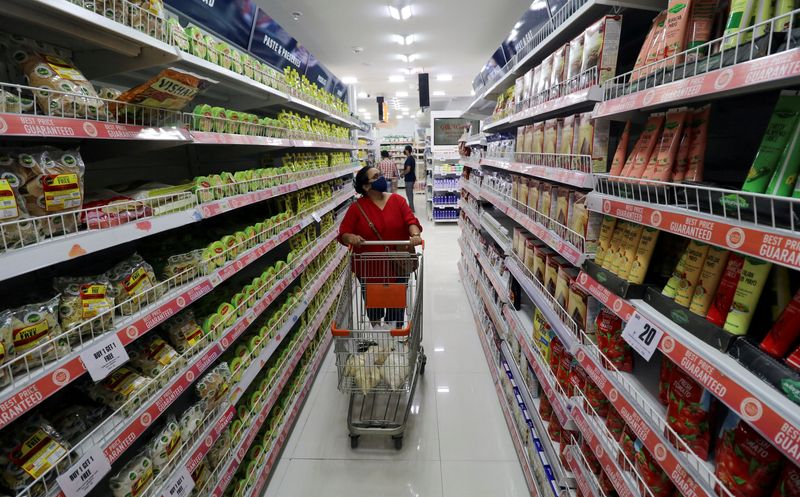By Manoj Kumar and Aftab Ahmed
NEW DELHI (Reuters) - India's annual retail inflation in February for a second consecutive month exceeded 6%, above the central bank's tolerance limit, while economists said policy rates were unlikely to rise soon given worries over economic recovery.
Consumer prices rose 6.07% in February, boosted by rising costs of food, fuel and household items, compared with 6.01% in the previous month, Ministry of Statistics data showed on Monday.
Analysts in a Reuters poll had predicted annual inflation would touch 5.93%, just below the upper limit of the Reserve Bank of India's 2% to 6% target.
Graphic: India's inflation above central bank's tolerance level for 2 straight months India's inflation above central bank's tolerance level for 2 straight months: https://graphics.reuters.com/INDIA-INFLATION/INDIA/egvbklgkdpq/chart.png
Prime Minister Narendra Modi's government is worried that rising energy and other commodity prices after the Russian invasion of Ukraine last month, coupled with rupee depreciation could stoke inflationary pressures and hit recovery.
Food prices, which contribute to nearly half of the consumer price index (CPI), climbed 5.85% year-on-year in February, compared with 5.43% a month before.
Economists said that in contrast to the U.S. Fed and some other central banks, the Reserve Bank of India (RBI) was not expected to raise rates soon despite high inflation given the pressure to support economic recovery.
Sakshi Gupta, economist at HDFC Bank said the central bank could continue to look beyond high inflation prints — viewing them as a supply side problem — in the near term and lean towards supporting growth.
"We do not expect the RBI to change its stance or policy rate at its April meeting.
RBI's monetary policy committee (MPC) will meet from April 6-8 for its next policy review.
Economists estimated that the core inflation, excluding volatile fuel and food prices, marginally eased to 5.9% to 5.95% in February from 6% to 6.02% in the previous month.

Warning against inflationary pressures, Michael Patra, RBI's deputy governor said last week that India's growth story remained as weak as it was during the 2013 'taper tantrum' and geopolitical tensions in Ukraine and Russia were further likely to hurt a recovery.
The RBI's monetary policy committee (MPC) had left the benchmark repo rate unchanged at 4.0% last month, sticking to its accommodative policy stance to help the economy recover from the pandemic.